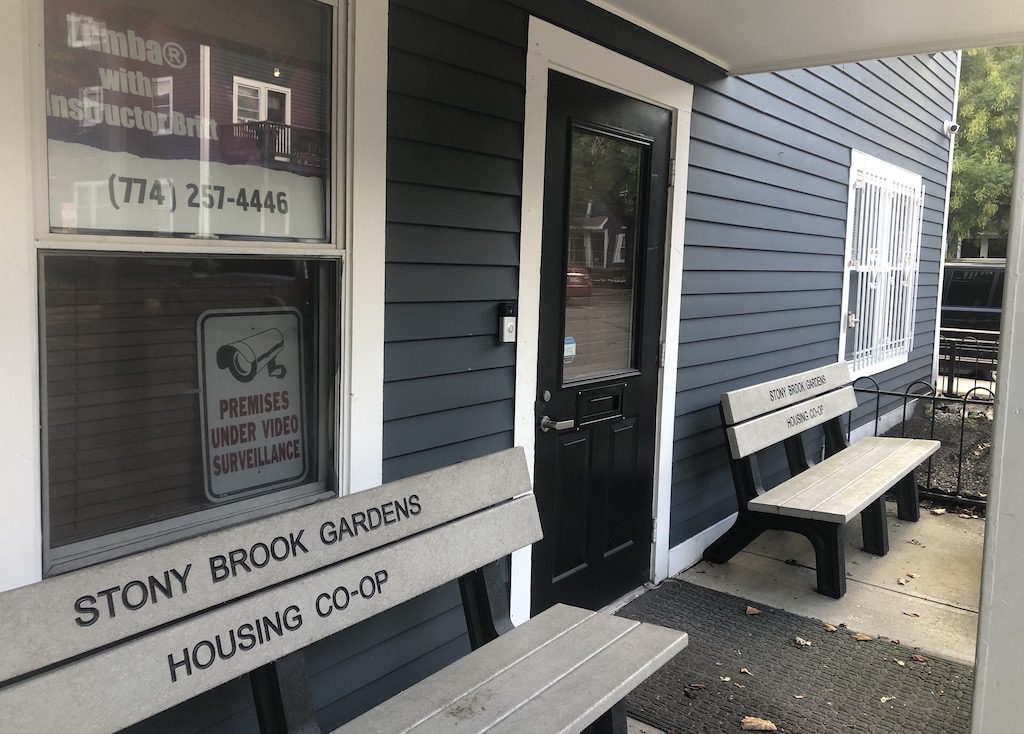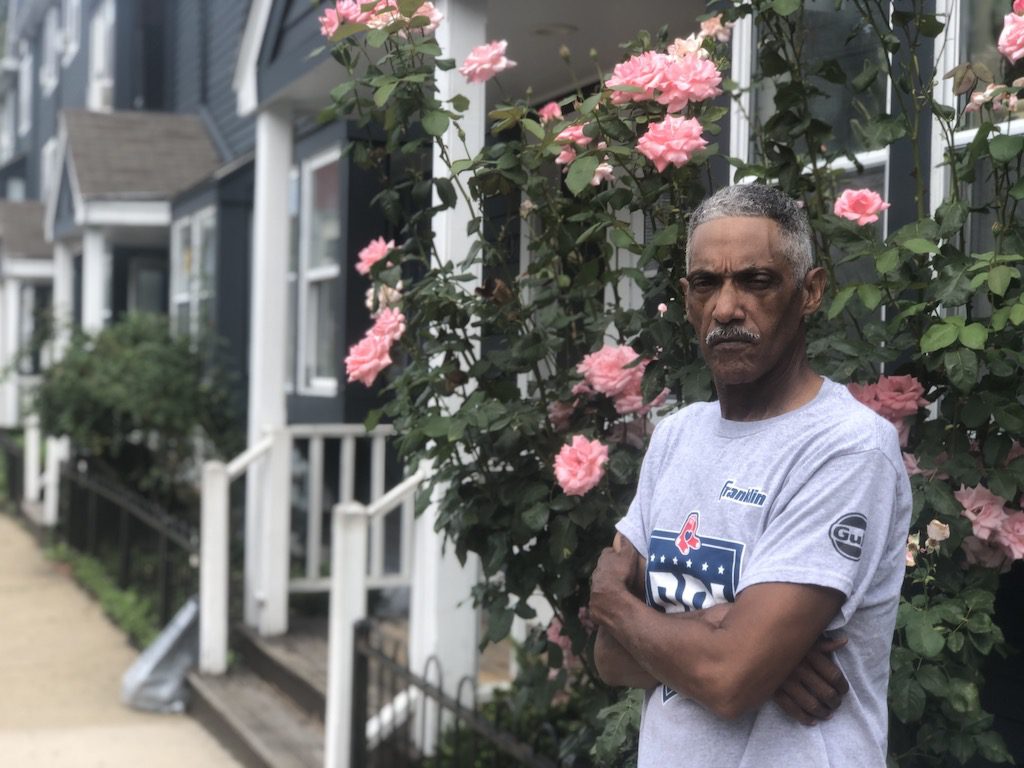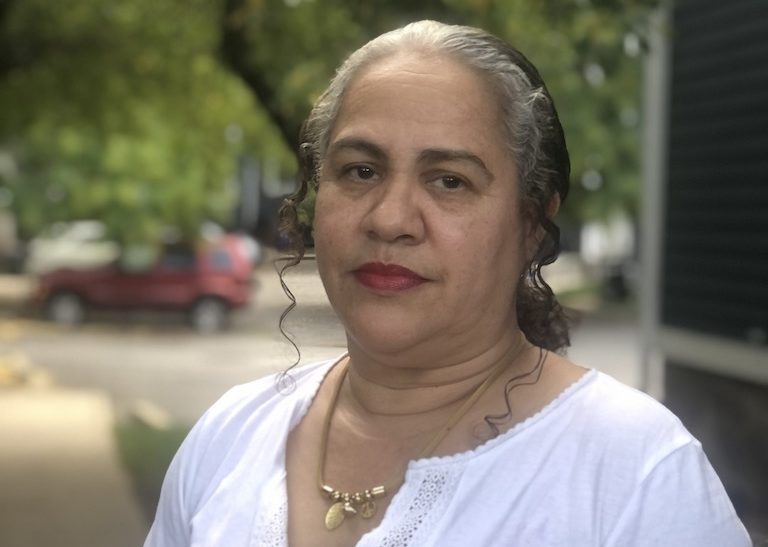El Mundo Boston investigates complaints from tenants and residents.

By Brian Wright O’Connor
A landmark Jamaica Plain housing cooperative, opened with fanfare 30 years ago, gave residents hope that its affordable rents and communal spirit would buffer the development from rapid gentrification in the desirable neighborhood along the Southwest Corridor.
Today, however, many tenants feel under siege.
The 50-unit cooperative, made up of three-story clapboard townhouses built around a single block, was dissolved as a corporation after the board leadership failed to file required paperwork with the Secretary of State’s office, according to state officials.
Numerous tenants have complained of checks for coop payments going uncashed along with repeated refusals to provide receipts, raising fears of unjust evictions.
Vendors who have provided maintenance and low-income tenant certification required by law say they’ve been stiffed and have given up any hopes of getting paid.
Most disturbing of all, say many residents, is what they call the sunset of the cooperative spirit in a development where neighbors once celebrated in a community hall and their children laughed together in the courtyard playground. Both the community center and the playground, they say, have been locked and denied to them for years.
«This was a little paradise,» said Rafael Pena, a 30-year Stony Brook tenant during an interview in his Lamartine Street apartment.
“We used to visit each other and eat together. But now we’re all divided and no one knows what’s going on. The management changes all the time and the board doesn’t tell us anything. We know nothing,”
Pena, like many residents, is an immigrant from the Dominican Republic and has been fearful of complaining publicly because of worries about losing his island of affordability in a city where townhouses like his can rent for more than $4,000 a month.
Pena says the opaque management style of the Stony Brook board has raised concerns that the development might go for sale to the highest bidder.
“Of course I’m worried,” he said. “We don’t know what might happen.”
Emblematic of the loss of the cooperative mission, they add, is the board’s alleged failure over the last eight years to hold annual meetings to elect officers and provide a full accounting for co-op expenses and receipts, which total an estimated $600,000 annually.
The reported lack of transparency has fueled suspicions of financial impropriety, including conversion of coop funds for personal use.

Moreover, they claim to be living under a vindictive management team that has mounted numerous surveillance cameras around the development, ignored maintenance requests, played favorites with tenants and allegedly provided units to friends and family members.
Darlene Parham-Johnson, president of the Stony Brook board, categorically denied the accusations when recently approached outside the coop office.
“The allegations have no credibility whatsoever,” said Parham-Johnson, cradling a small dog in her arms.
Pushed to respond to charges of neglecting annual meetings and elections, she said, “Our attorney has advised me not to comment,” before getting into the back seat of a low-slung black sedan and being driven away.
On an earlier occasion, Parham-Johnson pulled up to the front door of her Chestnut Street unit in a late-model SUV with New York plates as an El Mundo reporter rang her bell, located just feet from a surveillance camera.
She declined to comment but said she would arrange a meeting with the board to discuss the issues. Parham-Johnson subsequently failed to respond to numerous requests for that meeting.
Brett Edmunds, an attorney with the downtown Boston firm Flynn Law Group — which represents Stony Brook — emailed the El Mundo reporter requesting 10 days to respond to written questions left at his office about management practices and complaints.
The lawyer was given an additional two weeks beyond the initial request but did not respond to repeated phone and email messages.
Several weeks after El Mundo began its inquiries at the development, one of the residents received a communication from the management team promising to hold an annual meeting next month and elections in December.

The letter also announced a 30th anniversary Stony Brook gala in 2023 to mark three decades since Urban Edge, a Jamaica Plain-based community development corporation, completed construction of the coop on a vacant lot and handed out the keys to tenants.
The letter cited restrictions forced upon the development by COVID to explain changed management practices.
“With COVID-19 as a backdrop to life at Stony Brook over the past 18 months, our operations have been modified for some time to reflect vulnerabilities and subsequent recommendations associated with the public health crisis,” said the document.
But many residents said they weren’t buying the excuses.
“The problems go back long before the pandemic,” said Alfredo Liriano, a former board president and one of the original coop members.
“They’re just making empty promises. What are the dates for the meeting? The elections? We don’t buy that we couldn’t hold meetings. We could have done it through zoom. Where there is a will, there is a way. There is no will.”
Liriano, who shared letters from the Flynn Law Group accusing him of threatening behavior and possession of firearms after he complained about how the coop was being run, denied the allegations and said such tactics were intended to stifle dissent among coop members who have the power to throw out the current board.
“They have to go,” he said. “The whole lot of them. If there’s an election, we’ll field candidates. I’ll even run again if I have to.”
Liriano, who worked at a plumbing warehouse until Crohn’s disease forced an early retirement, recently filed a complaint about the Stony Brook board and management team with Attorney General Maura Healey’s office.
Roxana Martinez-Gracias, a spokeswoman for the office, said the complaint is under review but declined to comment further.
The former Stony Brook board president is a well-known figure in Boston’s close-knit baseball community. He has run the Roberto Clemente 21 Sports Program for decades, coaching and mentoring youth.
“This coop has to be saved for future generations,” said Liriano. “My wife and I raised six kids here. We know what’s at stake.”
The City of Boston’s Office of Neighborhood Development, which certifies the status of housing cooperatives as serving low-income residents in order to receive tax breaks, said that in 2020 “DND found Stony Brook residents to be in compliance with the covenant income restrictions,” adding that the next scheduled review would start this month.
Acting Mayor Kim Janey’s office issued a carefully worded statement saying the city “is committed to making sure every resident has an affordable and stable place to call home,” adding that the DND “supports the Stony Brook community and hopes to play a constructive role in future conversations among its shareholders.”
A spokeswoman for District 5 Boston City Councilor Matt O’Malley said the office is aware of complaints by Stony Brook tenants and is monitoring residents’ concerns.
According to Urban Edge’s president, the Jamaica Plain agency signed an agreement over 10 years ago with Stony Brook to review income certification documents but has not received any in recent years.
“We have an advisory role around compliance,” said Emilio Dorcely, “but we have not gotten any information from the board.”
Dorcely said he was aware of anonymous letters shared with Urban Edge about the board but said the CDC’s ability to act on the complaints is limited.
“It’s sad to see these issues going on,” he said. “The opportunity for affordable home ownership in Boston is even more limited than it was in the 90s when Stony Brook first opened.”
According to the Secretary of State’s office, Stony Brook’s governing corporation was dissolved in 2017 under Parham-Johnson for failing to file required annual reports but was reinstated in 2020.
“Once a corporation falls two years or more behind, we dissolve it,” said Debra O’Malley, communications director for Secretary of State William Galvin’s office. “Stony Brook failed to file for four years.”
In the most recent Stony Brook board filing with the office, Sergio Diaz was listed as treasurer, Shawna Howard as secretary, Kamara Springer as vice president and Vanessa Lopez as clerk. Written messages to Diaz, Springer and Lopez were left at their home addresses, asking for comment. None responded.
Howard, answering her door on Chestnut Street, said she resigned from the board and should not be listed among the coop officers.
Asked about allegations about the board and the coop management, Howard said, “I don’t want to say anything further because I don’t want to get in trouble with the people running the board.”
Responding to a query about the alleged absence of annual elections – a violation of the coop bylaws – and tensions between residents and the board, Howard said, before closing the door, “That’s why I resigned. I really can’t say anything more.”
According to a local property management consultant who asked that her name and the name of her company not be used, she compiled the tenant income data for the most recent City of Boston certification but was never paid.
“They were years behind in recertification,” she said.
“Some of the tenants were listed as showing they were significantly behind but they brought in receipts and check records showing that they did in fact pay and didn’t owe anything. They were all Spanish-speaking and were worried about getting evicted. They shared cancelled checks and money orders.”
The consultant said Parham-Johnson approached her to do the work but was unresponsive when it came time to getting paid $7,100 for her services as well as providing full access to coop records in order to complete the assignment.
The consultant terminated the contract, writing to Parham-Johnson and the board:
“This is due to the serious lack of communication, information and access to the office to provide and complete regulatory compliance support.”
Another vendor who did maintenance work at the coop said Parham-Johnson recruited him to work full-time at Stony Brook while he was employed by Urban Edge and on an on-call basis with Stony Brook.
Like several tenants, he said Parham-Johnson plays favorites and ignores maintenance requests from those she views as challenges to her authority. The vendor quit, he said, when she stopped paying him, leaving thousands of dollars on the table.
“I just couldn’t do it anymore,” he said, adding that property managers are constantly coming and going after disputes with Parham-Johnson.
Among those is Winn Companies, a Boston-based national property management firm that severed its ties to Stony Brook over five years ago, according to a company spokesman, who declined to comment further.
Isy Nunez, a resident who got an emergency placement at Stony Brook after a shooting at her front door on Washington Street in Jamaica Plain, runs a licensed home day care at her unit.
Meeting at the nearby Stony Brook Orange Line station because she didn’t want her conversation with a reporter viewed by coop surveillance cameras, Nunez said she ran into trouble with Parham-Johnson because the board president wanted her unit for someone else.

“The next thing you know, the playground in the courtyard is locked up and my kids have nowhere to play,” she said.
“Two people who were working in the office at the time said the only reason it was shut down was they wanted to make it difficult for me to run my day care business. But I’ve stood up for my rights and stayed.”
Maria Patrone, a 23-year resident of Stony Brook, said her complaints to Parham-Johnson and to a property manager known only as “Barbara” about not getting receipts for her coop payments were followed by cameras being placed around her front door.
“I’m afraid all the time,” said Patrone, who accompanied Nunez at the meeting outside the MBTA station. “It’s made me sick – given me headaches and panic attacks.”
Francisco Valdez, a Cuban émigré who has lived on Lamartine Street for 23 years, said he clashed with Parham-Johnson over ignored repair requests, including a leaky window that has damaged his floor to the point where the boards have rotted away.
“They ask us to leave checks in the box at the office even when they’re inside and won’t answer the door,” he said.
Another resident, who asked to be identified as “Olivia,” said she fell behind in rent and received a letter notifying her she had 30 days to pay back the arrears.
“I got a grant to help me with the money I owed but Darlene refused to sign the paperwork needed to get it. And she never responded to a letter my lawyer sent. She just wanted me out. And if you complain, she will retaliate.”
Olivia, a 14-year Stony Brook resident, said the friction with Parham-Johnson began when requests for repairs went unheeded.
“My toilet was broken. She did nothing. My sink was broken and it took three days for her to send someone. We’ve just had it.”
Tensions at Stony Brook have raised questions about the coop’s future.
Down the street at the Orange Line station, a triangular monolith is engraved with a Martin Espada poem about besieged low-income Latino families being forced out of their homes under suspicious circumstances.
In “Mrs. Baez Serves Coffee on the Third Floor,” the Brooklyn-born poet of Puerto Rican descent writes about tenants hanging on in spite of arson and intimidation.
Mrs. Baez, the understated heroine of the poem, “serves coffee / on the third floor / from tiny porcelain cups / insisting that we stay,” reads the engraved stone, which was installed decades ago as a tribute to the persistence of families that refused to give in and leave.
More than five decades since gentrification started chasing poor families from their Boston homes, residents of Stony Brook are worried about history repeating itself – not through fire this time, but through intimidation and neglect.
“We used to break bread together, laugh together, but no longer,” said Liriano. “Those days are over. Now it’s time for a fight.”







